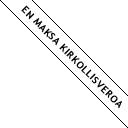Venezuelan alasajosta
Säälittävän heikko raha- ja finanssipolitiikka on latinalaisen Amerikan pitkäaikaisia vitsauksia. Venezuelassa, uusimmassa sosialistisessa kokeessa, Hugo-peikko jatkaa öljyrahojen pumppaamista talouteen, kiihdyttäen inflaatiota, mutta pitäen samalla kiinni hintakatoista, jotka yhdistettynä inflaatioon johtavat alijäämiin peruselintarvikkeiden tuotannossa. Samalla sosialisoinnit sun muut aiheuttavat sen, että valtion rooli talouden pyörittämisessä kasvaa ulkomaisten firmojen viedessä investointinsa muualle.
Hugo-peikko tosin voinee pysäyttää ulkomaankaupan, mutta tämä lähinnä kiihdyttäisi Venezuelan alasajoa, kun niukkoja voimavaroja jouduttaisiin uhraamaan sellaiseen toimintaan, jota ei välttämättä kannattaisi itse tehdä. Hugon politiikkaa ehkäisee suhteellista etua toimimasta optimaalisella tavalla.
Tarkastellaanpa vielä hieman, mitä tämä endogeenisen kehityksen tukeminen oikeasti tarkoittaa:
Demokratian riemumarssi jatkuu:
-Economist 1, 2.
-BBC
-Bloomberg 1, 2, 3.
Sept. 27 (Bloomberg) -- Venezuela's currency held at a record low in unregulated trading as the Finance Ministry said it would prosecute people who fraudulently obtain dollars.Eipä. Vaikka dollarin arvo on viime aikoina heikentynyt suhteessa muihin merkittäviin valuuttoihin, on sillä tästä huolimatta monelle, varsinkin epävakaissa rahaoloissa eläville, merkittävä rooli arvon säilyttäjä, kun esim. Venezuelan oma valuutta (bolivar) menettää ulkoista ja sisäistä arvoaan. Tässä mielessä venezuelalaiset toimivat kuten länsimaalaiset pari kuukautta sitten, kun kullan arvo nousi subprime-kriisistä johtuvien epävarmuuksien takia. Venezuelan hallitus nähtävästi tekee kaikkensa estääkseen venezuelalaisia varautumasta epävakaisiin rahaoloihin. Tämän logiikan mukaan mitään pelastusveneitä ei tarvita; kaikkien tulee hukkua kapteenin mukana.
The bolivar was little changed at 4,975 bolivars per U.S. dollar in unregulated currency exchange, traders said. Venezuela's currency has fallen 18 percent this quarter and 32 percent this year.
The Foreign Exchange Administration Commission, which grants Venezuelans authorization to buy dollars at the official exchange rate of 2,150 for online credit card purchases or travel abroad, asked more than 1,000 people this week to document their use of dollars.
``Venezuelans who follow the law have nothing to worry about,'' Finance Minister Rodrigo Cabezas said in a statement yesterday. ``But those breaking the law will be brought to the attorney general, and we'll work to get those dollars back.''
Thanks to economic growth and social programmes, the government claims that only 30% of Venezuelan families now live in poverty, down from 55% at the peak in 2003. But according to a new report by the central bank, income inequality has widened slightly under Mr Chávez: the Gini coefficient—a statistical measure of inequality—has gone from 0.44 in 2000 to 0.48 in 2005.En pidä gini-kerrointa kovinkaan merkittävä taloudellisen hyvinvoinnin indikaattorina, mutta luulisi vasemmistolaisten Venezuela-fanien älähtävän tästä "epätasa-arvoisuuden"kasvusta. Venezuelan tapauksessa kyse todellakin on epätasa-arvoisuuden kasvusta, eikä mistään tyypillisestä marxilaisesta retoriikasta. Venezuelan "boligarkit" rikastuvat muiden kustannuksella, sillä he nauttivat sellaisista vapauksista (korruptoituneen valtion suomista privilegioista), joita muille ei suoda.
Mr Chávez claims to be pursuing economic nationalism and “endogenous development”. But farmers and manufacturers struggle against cheap imports. Though local dairy products are often missing from the supermarket shelves, Gouda and Emmenthal cheeses nestle beside Irish butter. The frozen chickens at Mercal, a government chain of subsidised grocery shops, are Brazilian. The importers who supply Mercal have grown rich. But Venezuela's ranchers are becoming extinct, threatened by expropriations, land invasions and price controls, as well as by extortion and kidnappings by criminal gangs.Ironista.
Hugo-peikko tosin voinee pysäyttää ulkomaankaupan, mutta tämä lähinnä kiihdyttäisi Venezuelan alasajoa, kun niukkoja voimavaroja jouduttaisiin uhraamaan sellaiseen toimintaan, jota ei välttämättä kannattaisi itse tehdä. Hugon politiikkaa ehkäisee suhteellista etua toimimasta optimaalisella tavalla.
Tarkastellaanpa vielä hieman, mitä tämä endogeenisen kehityksen tukeminen oikeasti tarkoittaa:
Foreign direct investment was a negative $881 million in the first half as foreign companies pulled out money.
Contreras called the government-set prices on many products ``fantasy prices'' that are below production costs. Items including milk, chicken, coffee and flour have disappeared from store shelves in Caracas at times this year because companies refused to sell at a loss.Eli ensin Hugo ajaa tehokkaasti toimivat ulkomaiset yhtiöt pois maasta, sitten hän asettaa hintakatot, jotka johtavat alijäämiin mm. maidon ja kahvin tuotannossa, minkä seurauksena Hugon on pakko ostaa näitä tuotteita ulkomailta, mikä taas vahingoittaa kotimaista tuotantoa. Tämä siis on Hugon mielestä endogeenisen kehityksen tukemista.
The government has responded by giving importers more dollars at the official exchange rate. Imports soared 43 percent in the first half to a record $20 billion after tripling in the previous three years.
Demokratian riemumarssi jatkuu:
The constitutional reforms would also increase presidential control over the central bank.Sinänsä hauskaa, että Chavez tovereineen on äänestetty valtaan. Ihmisen typeryydelle ei ole mitään rajoja. Venezuela ei tietenkään enää ole demokraattinen maa. Lehdistön vaimentamisen lisäksi Chavezin hallinto aikoo pakottaa myös koulut osallistumaan Chavezin hulluuteen:
The reforms would remove term limits and extend the presidential term of office from six years to seven.
Other changes include bringing in a maximum six-hour working day and strengthening state economic powers.
VENEZUELAN parents can have any schooling they like for their children—so long as it's red. That is the message from President Hugo Chávez and his elder brother Adán, a Marxist physics teacher who is the education minister. It is spelt out in a 549-page draft education plan recently leaked to the press. It was expressed, too, at the start of the school year last month, when television showed images of high-school pupils chanting “fatherland, socialism or death!” and singing songs in praise of the president.Ja korttitalo pysyy toistaiseksi pystyssä, koska:
``For the macroeconomic house of cards not to come crashing down, the price of oil has to go up at double digit growth rates,'' Hausmann said. ``If oil stays at $70, they're going to hit the wall.''Tässä jutussa käytettyjä lähteitä mm.:
-Economist 1, 2.
-BBC
-Bloomberg 1, 2, 3.





